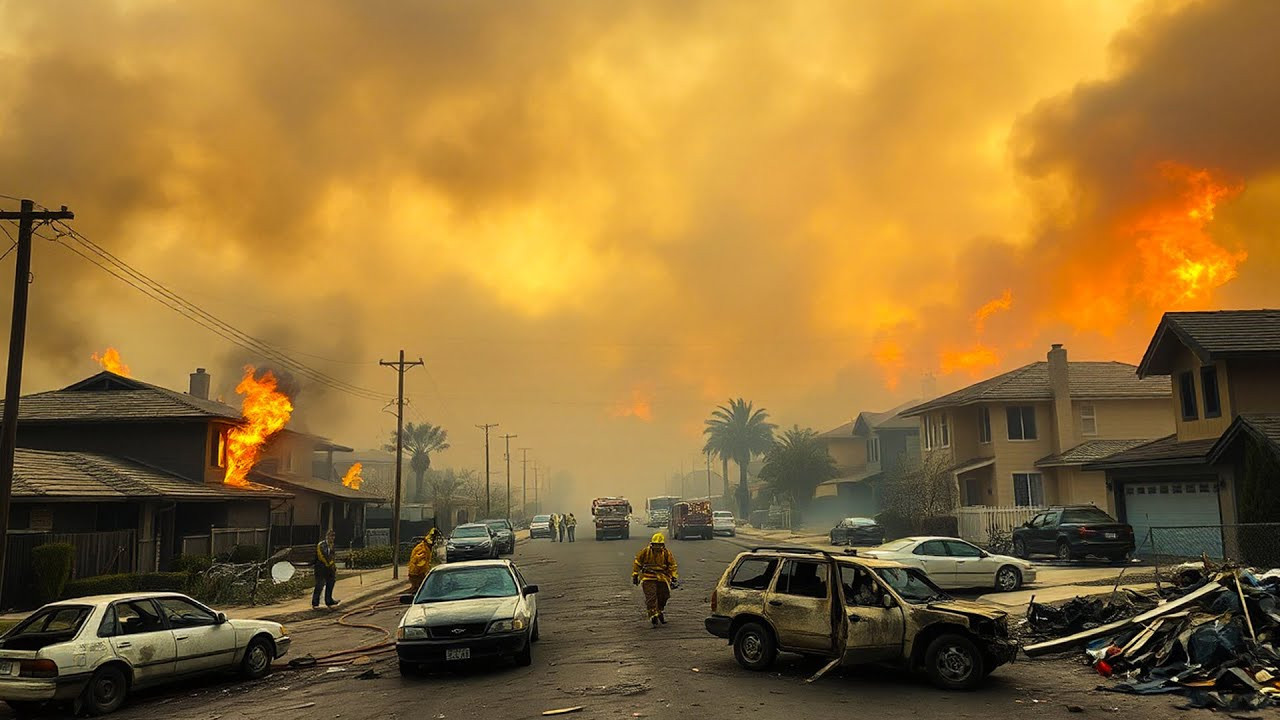The Mountain Fire erupted in the mountains of Ventura County, California, on the morning of November 6. Due to winds gusting up to sixty miles per hour, the fire spread across thousands of acres in just a few hours. Every four seconds, it consumed an area the size of a football field. Embers from the fire were carried up to two and a half miles away, sparking new spotfires. The strong winds also made it impossible to use aircraft for firefighting efforts.
Authorities issued over 14,000 evacuation notices. The Ventura County Fire Chief urged residents not to attempt to protect their homes on their own. According to him, some people try to stay until the last moment, but when the fire gets too close, they are unable to breathe or see anything, putting themselves at risk of being trapped. Firefighters were forced to evacuate many such people in their trucks, literally pulling them out of the rapidly advancing flames.
Nearly 70,000 people were left without power, as electricity was intentionally cut off as a precautionary measure. The smoke from the wildfires turned the sky above Southern California into a chilling, post-apocalyptic orange hue.
By the following day, more than 14,000 acres of land had been scorched, and firefighters were still struggling to contain the fire. It wasn't until Friday evening, when the wind died down a little, that the fire was contained to 14%. By then, the fire had burned through 20,630 acres, destroying 132 structures. Ten people were injured.
Another fire broke out on November 6 in Malibu, near Los Angeles. Fortunately, it was quickly extinguished, and no one was hurt, although three homes were damaged.
Wildfires in California are becoming more intense due to the Santa Ana phenomenon — strong east winds blowing from the deserts toward the coast. These winds significantly accelerate the spread of fire, especially in the fall when the soil and vegetation dry out after the hot summer months. However, the situation worsened after two unusually wet winters that encouraged the explosive growth of shrubs and grasses in California. Now, these carpets of dried vegetation act as fuel for the fire, ready to ignite at the slightest spark.
Another reason why wildfires are becoming increasingly uncontrollable, despite modern technology, is degassing. Scientists have found that fires often occur in areas of geological fault lines, where flammable gases like hydrogen and methane rise from the earth’s depths. Unfortunately, such factors are not always taken into account in firefighting strategies, leading to devastating losses.
If specialists considered all these factors, it would be possible to not only reduce the damage from fires but also save nature, wildlife, minimize financial losses, and, most importantly, preserve human lives.
The world faces more frequent natural disasters, and old methods are no longer effective. The forum "Global Crisis. The Responsibility" has provided detailed insights on what can help stabilize the planet's catastrophic events.

